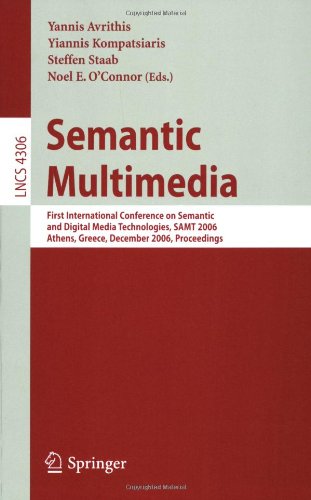

Most ebook files are in PDF format, so you can easily read them using various software such as Foxit Reader or directly on the Google Chrome browser.
Some ebook files are released by publishers in other formats such as .awz, .mobi, .epub, .fb2, etc. You may need to install specific software to read these formats on mobile/PC, such as Calibre.
Please read the tutorial at this link: https://ebookbell.com/faq
We offer FREE conversion to the popular formats you request; however, this may take some time. Therefore, right after payment, please email us, and we will try to provide the service as quickly as possible.
For some exceptional file formats or broken links (if any), please refrain from opening any disputes. Instead, email us first, and we will try to assist within a maximum of 6 hours.
EbookBell Team

4.7
66 reviewsWe are delighted to welcome you to the proceedings of the 1st International Conference on Semantic and Digital Media Technologies held in Athens. SAMT 2006 aims to narrowthe large disparity between the low-level descr- tors that can be computed automatically from multimedia content and the ri- ness and subjectivity of semantics in user queries and human interpretations of audiovisual media — The Semantic Gap. SAMT started out as two workshops, EWIMT 2004 and EWIMT 2005, that quickly achieved success in attracting high-quality papers from across Europe and beyond. This year EWIMT turned into the full-?edged conference SAMT, bringing together forums, projects, - stitutions and individuals investigating the integration of knowledge, semantics and low-level multimedia processing, and linking them with industrial engineers who exploit the underlying emerging technology. In total, 68 papers were submitted to the SAMT 2006 conference and each was reviewed by at least two independent reviewers. We are grateful to the membersoftheTechnicalProgramCommitteewhocompletedthesereviewsand allowed us to put together a very strong technical program of 17 papers. The selection process was very competitive with only 25% of papers being selected for oral presentation. The program also included two invited keynote talks from Alan Smeaton and Guus Schreiber, and we are very grateful to them for their insightful presentations.